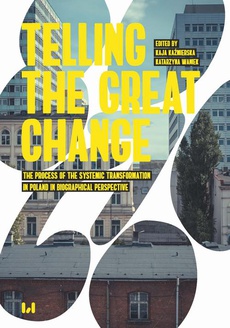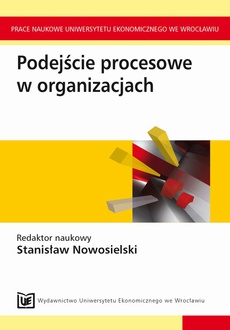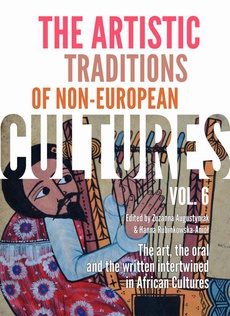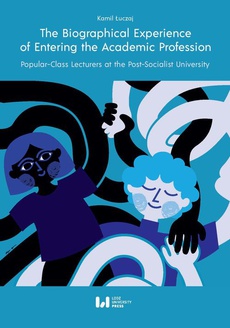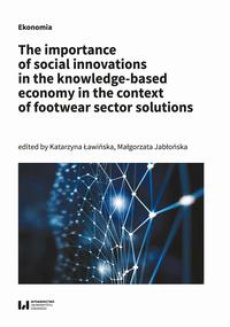POLECAMY
Telling the Great Change
The Process of the Systemic Transformation in Poland in Biographical Perspective
Redakcja:
Wydawca:
Format:
ibuk
The book is pioneering in Poland. but also in Central Europe. lt shows the mechanisms of adaptation to the systemie transformation in Poland after 1989, based on the analysis of narratives of people barn in 1960, 1970 and 1980 who are representatives of diverse social milieus and have different professional and life experiences. The reader will find here a model application of the biographical research methodology developed by Fritz Schütze for a series of case studies. which makes this publication the most extensive work using the indicated method for research on transformation. The authors of the individual chapters, emphasizing the individual agency of the subjects, avoid the pitfalls of neoliberal discourse shifting responsibility for their fates onto individuals. Apart from the analysis of autonomous ways of agency, they show various potentials of losing control over one’s life, biographical trajectories, as well as biographical resources, mainly of a family nature, which serve to deal mare effectively with the consequences of systemic transformation.
| Rok wydania | 2020 |
|---|---|
| Liczba stron | 652 |
| Kategoria | Publikacje darmowe |
| Wydawca | Wydawnictwo Uniwersytetu Łódzkiego |
| ISBN-13 | 978-83-8142-456-1 |
| Numer wydania | 1 |
| Język publikacji | angielski |
| Informacja o sprzedawcy | ePWN sp. z o.o. |
Ciekawe propozycje
Spis treści
| Foreword | 9 |
| Part 1. Introduction: “Telling the Great Change…” (Jacek Burski, Joanna Wygnańska) | 13 |
| Chapter I. Methodological note (Kaja Kaźmierska) | 33 |
| Chapter II. Winners and losers of the process of transformation as an etic category versus an emic biographical perspective (Kaja Kaźmierska) | 49 |
| Chapter III. Narrative agency and structural chaos. A biographical-narrative case study (Piotr Filipkowski) | 79 |
| Part 2. From PPR to systemic transformation (Joanna Wygnańska) | 103 |
| Chapter IV. The experience of systemic transformation in contemporary biographical narratives of older Poles (Danuta Życzyńska-Ciołek) | 115 |
| Chapter V. Social innovators in coping with social problems – PPR, systemic transformation, and new Poland (Agnieszka Golczyńska-Grondas) | 143 |
| Chapter VI. Life of things from the perspective of the Polish systemic transformation (Renata Dopierała) | 171 |
| Chapter VII. Paradoxes of ideological privileges – a case study of a female textile worker from Łódź (Kaja Kaźmierska) | 195 |
| Chapter VIII. The process of acquiring and developing a critical attitude towards the socialist regime in Poland (Katarzyna Waniek) | 229 |
| Chapter IX. A new logic of power, old biographical patterns of action. Case study of Weronika’s life history (Joanna Wygnańska) | 251 |
| Part 3. Transforming opportunity structures: biographical chances, hopes, illusions, and dead-ends (Agnieszka Golczyńska-Grondas, Katarzyna Waniek) | 281 |
| Chapter X. Biographical traps of the transformation process – cohort 1980. The potentials of disorder and suffering in the experiences of young Polish women entering social worlds of art, medicine, and academia (Katarzyna Waniek) | 297 |
| Chapter XI. Transformation and the biographical experiences of healthcare workers (Jacek Burski) | 349 |
| Chapter XII. “Twist of fate”: declining and rising lines of occupational career in the biographical experiences of two engineers (Jacek Burski, Katarzyna Waniek) | 385 |
| Part 4. Biographical resources: family and social networks (Kaja Kaźmierska) | 425 |
| Chapter XIII. A trap of systemic changes – Pola’s biographical drift (Agnieszka Golczyńska-Grondas, Małgorzata Potoczna) | 443 |
| Chapter XIV. Narratives rooted in family milieu. Case studies of Agnieszka and Paweł focused on the family thread as the biographical resource and main story-line (Joanna Wygnańska) | 475 |
| Chapter XV. A biographical experience of the yard as a symbolic biographical resource (Jacek Burski, Joanna Wygnańska) | 523 |
| Chapter XVI. (Re)creating bonds in the local environment – a contrastive comparison of two life strategies (Kaja Kaźmierska) | 563 |
| Conclusions – Understanding transformation as a social change stretched in time and space (Kaja Kaźmierska, Katarzyna Waniek) | 589 |
| References | 601 |
| Appendix | 633 |
| Transcription Notation | 633 |
| List of narrators | 635 |
| Notes about the Authors | 641 |
| Index | 645 |

